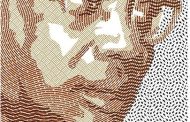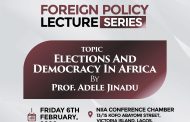Soldiers toppling civilian leaders across Africa was a very regular thing in the mid-1960s and thereafter. In the post Cold War, there was a thaw as popular interests took on military dictatorship, forcing the study as well as practice of democratization into the agenda.
Just as everyone was about heaving a sigh of relief that military rule has gone to its grave, then the current wave started to appear. Those who have kept a good track lists them with fanfare: Sudan, Chad, Mali, Guinea and Burkina Faso. Who knows where next?
In most cases, they were welcomed with jubilation on the streets by hungry and angry populace, mostly young, educated but unemployed people, a huge contrast with what the UN, ECOWAS and the African Union might be saying or saying tongue in cheek.
It raises the question of what might have happened to the slogan about the worst democracy being better than the best military regime? It is a question worth pondering on because, as an informed commentator is pointing out, the continent appears heading to a situation in which only a few countries might be retaining formal democratic institutions but with illiberal processes because of the fear of coups. And outright dictatorship where the military has managed to take-over!
During the Cold War, soldiers took over mainly to prevent the next African country from falling into communism. Internal political score settling played a role in most coups then but the Cold War was the larger context. Now, the global war on terror seems to be the new context.
Inability to deal with terrorist threat has weakened many African governments in the eyes of the people. Exasperated citizenry who, in addition to poverty and the associated misery, have to cope with lack of safety then jubilate in approval of anything but a particular elected government that they could see to have no solution to the insecurity challenge. This applies especially to the latest coup in Burkina Faso. Sudan is slightly different but the upheaval there is also a reaction to prolonged insecurity.
So, is this a return to the old order as obtained from the mid-1960s to the end of the Cold War?




























